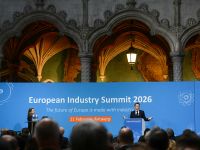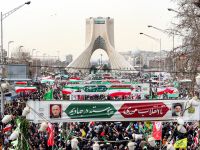Solar-eMobility coupling can power the GCC’s next wave of decarbonisation

PwC Middle East today released its latest report, coupling solar with eMobility: The next frontier in clean transport, highlighting how connecting solar energy and electric mobility (eMobility) can accelerate the region’s transition towards a cleaner, more connected future. Aligning solar generation with EV charging through smart infrastructure, energy storage and demand-side management can reduce grid emissions, optimise energy use and create more resilient, cost-effective mobility systems.
The report provides a practical roadmap for governments, businesses and urban planners to integrate renewable energy and eMobility ecosystems, turning today’s climate ambitions into measurable progress.
As GCC nations advance towards their net-zero targets, connecting solar generation with electric vehicle (EV) charging presents a transformative opportunity. With EVs parked 95% of the time, the report identifies a significant opportunity to synchronise charging with solar availability, turning idle vehicles into active components of the clean energy ecosystem. By installing rooftop solar at workplaces, shopping centres and residential buildings, most charging can occur during daylight hours – reducing costly grid upgrades and dependence on fossil-fuel backup during evening peaks.
Heiko Seitz, Global and Middle East eMobility Leader, PwC Middle East, said : “Coupling solar power and eMobility isn’t just about cutting emissions – it’s about building a new energy economy for the GCC. Clean mobility can become a catalyst for investment, jobs and innovation across the energy value chain, while strengthening grid resilience for decades to come.”
While the potential to connect solar energy with eMobility is compelling – especially in the GCC— full integration will take time. Progress is visible, but there are grid limitations. Hybrid charging and solar systems are still costly and lack integrated financing models. Finally, awareness remains low, with most EV users charging at night instead of during solar peak hours. Better coordination, smarter infrastructure and consumer engagement are key to unlocking the opportunity. Three key enablers of successful solar eMobility integration.
• PwC’s report highlights three priorities for effective implementation: Smart charging and energy management systems to align charging cycles with solar availability, reducing grid pressure and electricity costs.
• Battery storage solutions to balance generation and demand, using surplus daytime solar to power evening charging.
• Vehicle-to-Everything (V2X) technology enabling EVs to act as mobile storage units, feeding energy back into homes, buildings and grids.
The report also draws lessons from Europe, where coordinated policies and consumer incentives are driving rapid adoption. In Germany, homeowners receive up to €10,200 to install rooftop solar, battery storage and EV chargers. The Netherlands has introduced nationwide smart-charging infrastructure and Norway continues to expand renewable-powered public charging networks – providing blueprints for emerging markets to adapt and scale.
PwC’s analysis concludes that integrated energy-mobility ecosystems could accelerate decarbonisation, reduce long-term infrastructure costs, strengthen grid resilience and create new public-private business models for energy services.
The report calls on policymakers, utilities and private-sector leaders to coordinate national strategies, enable dynamic tariffs and invest in interoperable technologies that seamlessly link solar, storage and mobility systems.
Background Information
PricewaterhouseCoopers (PwC)
With offices in 158 countries and more than 250,000 people, we are among the leading professional services networks in the world. We help organisations and individuals create the value they’re looking for, by delivering quality in assurance, tax and advisory services.






